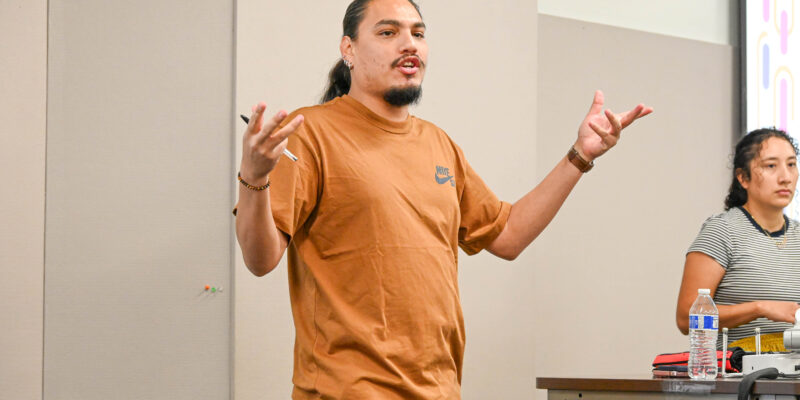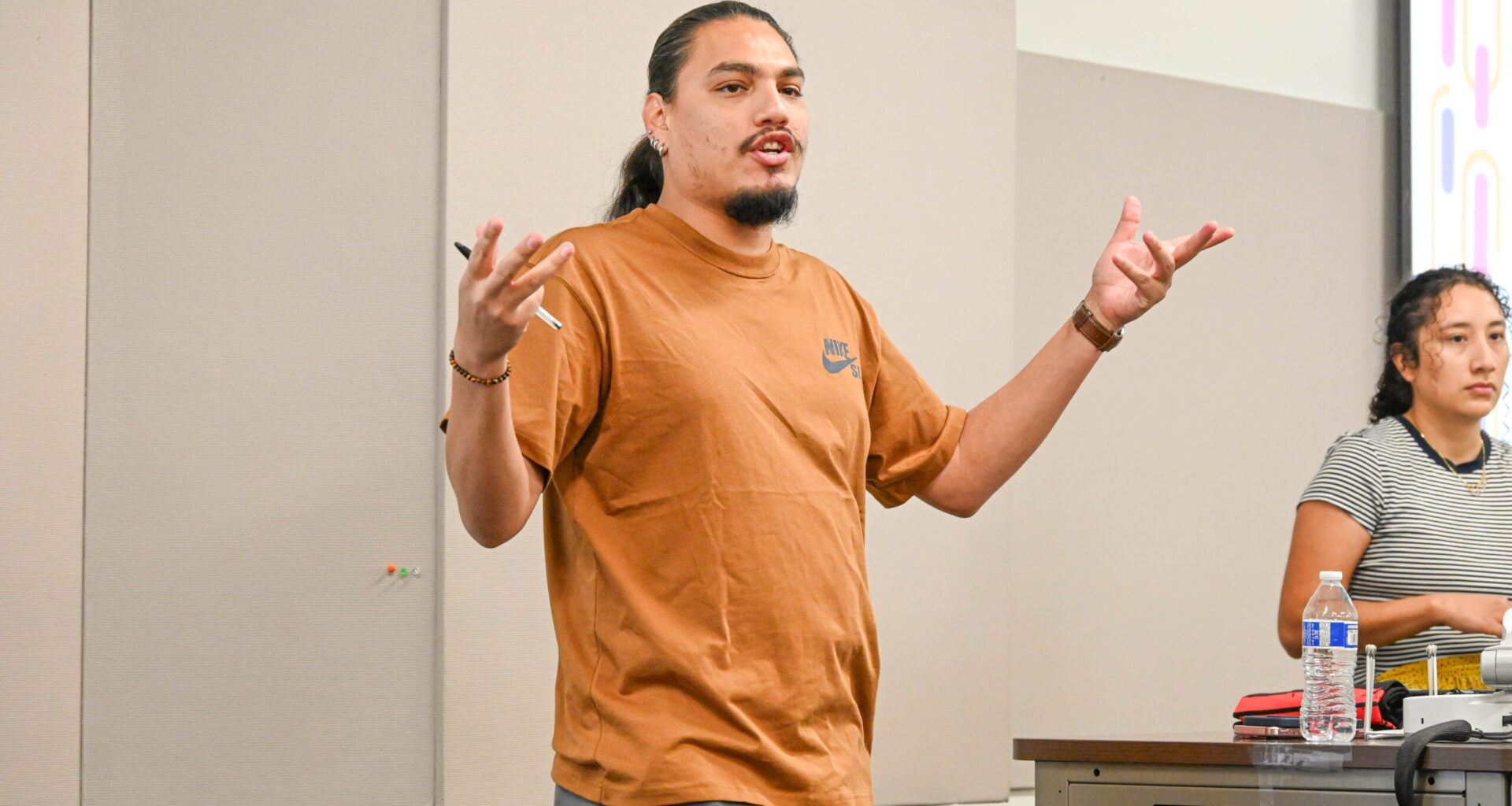
ÓRALE’s community organizer, Erik Garcia, discusses the importance of defense networks made for the community at the Anatol Center on Oct. 22. Rehansa Kulatilleke | Long Beach Current
As Immigration and Customs Enforcement raids surge through local communities, Long Beach faculty members and a nonprofit organization are teaching the campus community about their rights and resources.
California Faculty Association’s Long Beach chapter and ÓRALE collaborated to inform the community and increase a sense of support at their workshop at the Anatol Center on Oct. 22.
The groups discussed available community resources, what to do during encounters with ICE and how to respond safely.
ÓRALE is a Long Beach-based organization that helps immigrants understand their rights.
“ÓRALE is a well-known organization within Long Beach. We’ve attended various other workshops and ÓRALE is really targeted specifically in our area,” retired California Faculty Association member and CSULB professor Deborah Hamm said.
Hamm said the partnership of the workshop is authentic and relevant to ICE raids in local communities. She said ÓRALE has a strong reputation for its community-driven work that the Long Beach community can trust.
ÓRALE community organizers Denisse Tapia and Erik Garcia talked about community defense networks, rapid response systems and emphasized securing documents while also highlighting the importance of self-risk assessment.
ÓRALE, previously known as the Long Beach Immigrant Rights Coalition, was established in 2006 after the May Day March in Los Angeles.
The organization has gone through changes, shifting its focus to immigrant justice during the past few years. In 2023, ÓRALE rebranded with a new name: Organizing Rooted in Abolition, Liberation, and Empowerment.
ÓRALE has aimed to engage with the community by scheduling presentations with other groups, churches, and campuses to establish better communication systems for community action when ICE gets sighted.
“ÓRALE is building and sustaining a thriving immigrant-led movement to end criminalization of immigrants and secure bold protections and opportunities that allow immigrant communities to thrive,” their website says.
Garcia, organizing and program director for ÓRALE, shared why immigrant justice organizations are important and how ÓRALE is striving to provide important knowledge for communities on how to handle potential ICE encounters.
“Over the past five years, we’ve rebranded for something more fit for our people. With revamping of prioritization on our principles and values, we focus specifically on economic justice, health and wellness, and organizing policy change,” Garcia said.
Claire Garrido-Ortega, co-president of the California Faculty Association’s Long Beach chapter, has met with labor management to share the community’s demands for better ICE alert systems, along with improved information on faculty pages.
“The information that’s presented is overall vague and confusing,” Garrido-Ortega said, referring to the new statewide law that mandates for communities and universities when ICE is on campus. “They’re acting like nothing happened; right here at the car wash on the corner near campus it’s happened. We gave them two weeks to develop something, but haven’t heard anything since. We’re gonna provide our own guidelines, that’s where we are right now.”
At the workshop, faculty volunteers welcomed attendees and provided pizza, drinks and flyers with important information, as well as how to reach out for help.
James Matthews, CSULB instructor at the Osher Lifelong Learning Institute, attended the event to learn how to help families facing hardships due to immigration.
“ÓRALE had a lot of positive and uplifting messages, reminding us of our rights, as well as what we should do if ICE presents itself,” Matthews said.“I hope to attend another event, I feel informed and more aware on how to assist and give hope.”

